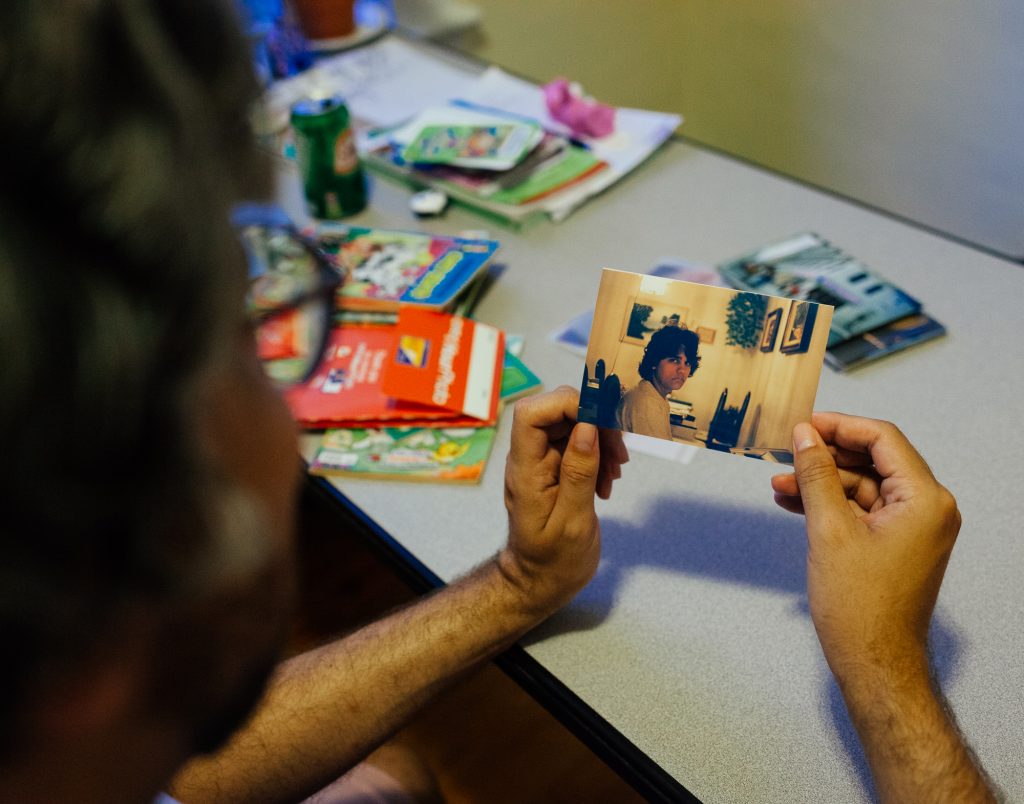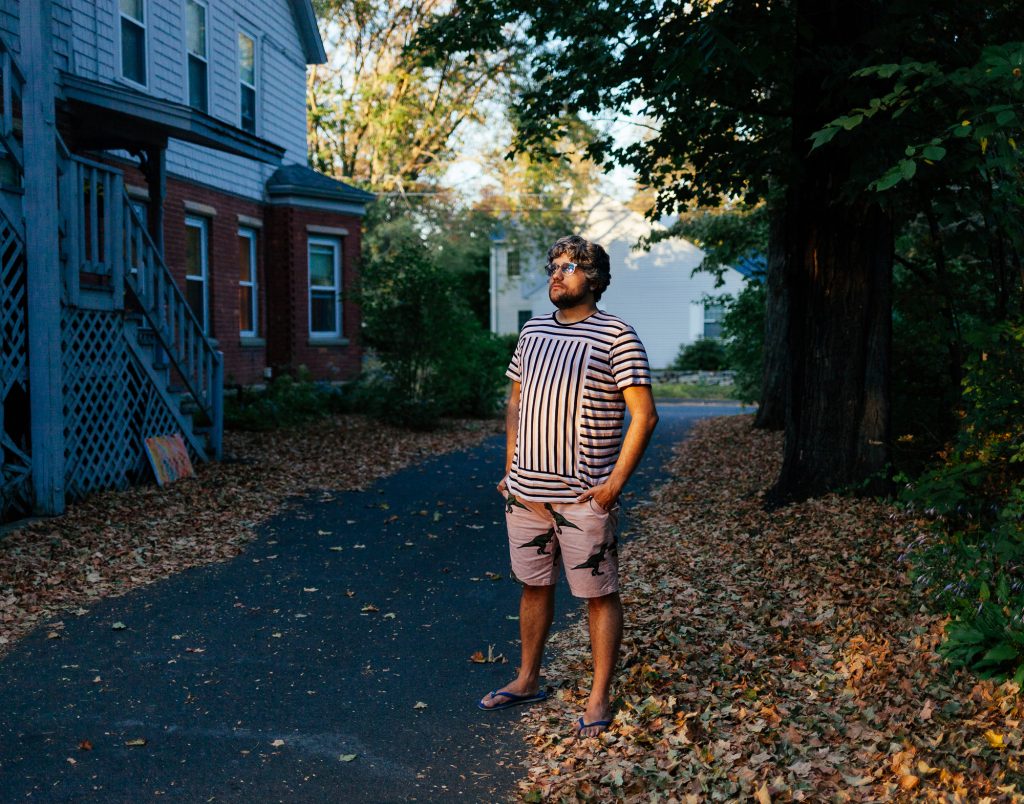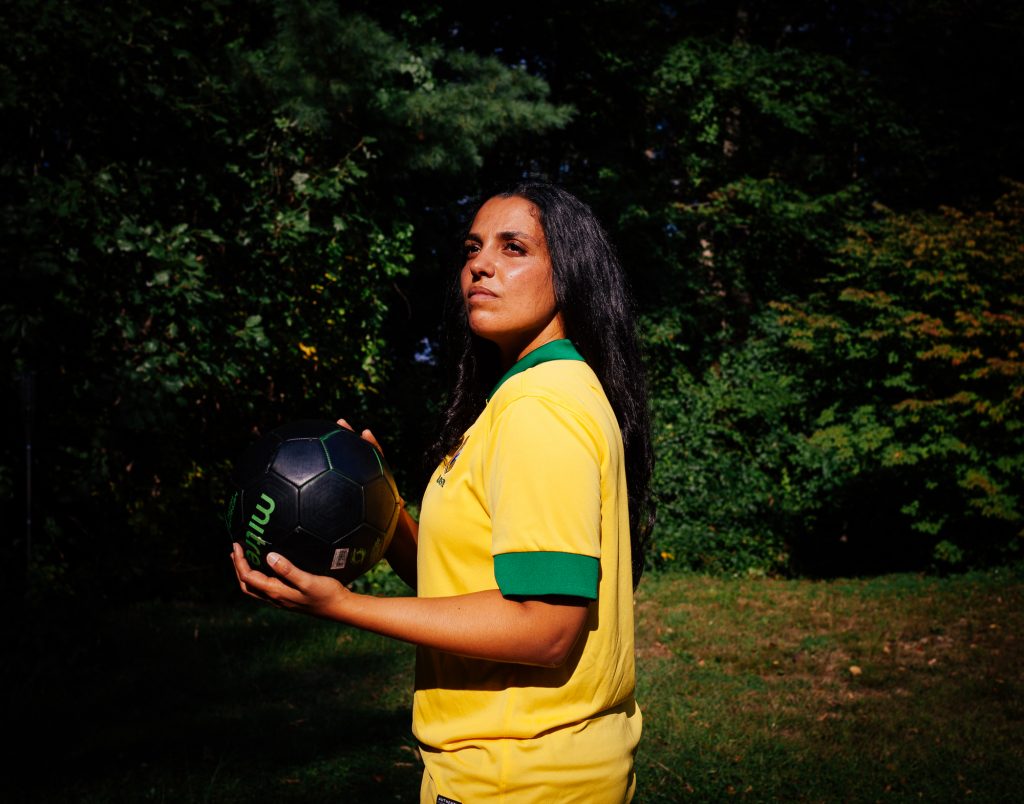
Childhood
Priscilla was born in São Paulo, Brazil, the country’s most populous city, to a Brazilian mother and an Australian father.
“One of my greatest memories is going to a feira (outdoor market) with my mom and eating pastel and drinking sugar cane juice.”
The first time the family traveled outside of Brazil was to move to the United States – it was for her father’s job. Her baby brother, the youngest of her three siblings, was born in Boston. Priscilla will never forget the day the family learned that he had Leukemia.
“We all had to grow up fast.”
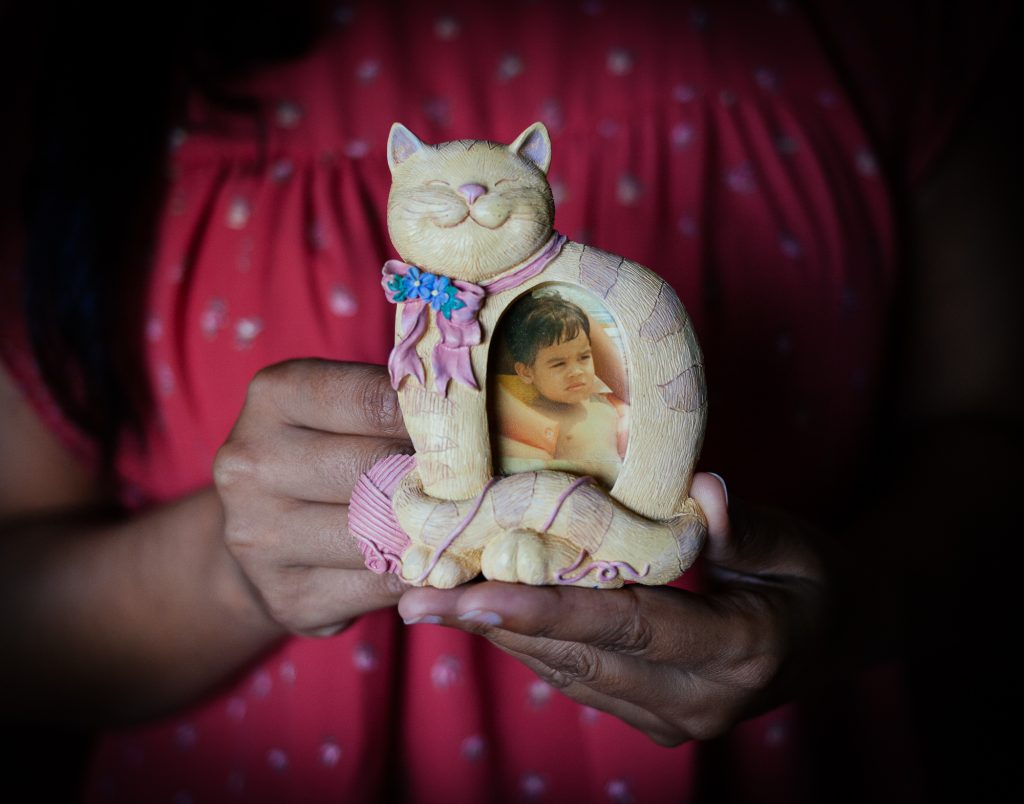
After that, most of the traveling the family did was for her brother’s health care. They moved between Brazil, Mexico, Singapore, and a few American cities. All this moving left Priscilla feeling as though she didn’t have a “home.” She learned to avoid close relationships with people, as she knew she was going to be saying goodbye soon enough. The family was in Singapore when her brother’s health took a turn for the worse. He passed away at six years of age when Priscilla was 14. It was then that, “everything just fell apart” for her family.
She remembers her little brother, fondly.
“When times are tough, I look at his photo, and it reminds me to always be strong. He was strong even in his last breaths. He had this very old soul that shined happiness.” (audio below)
United States
Priscilla moved to the United States permanently in 1996 to study travel/tourism, and hotel administration at a Lasell College in Boston, Massachusetts. Shortly after getting her degree, at age 22, she had her first child.
“I was not excited about being a homemaker, so I decided to put my degree to use and open up a home-based travel agency. This job allowed me to be with my child and use my degree to assist others with my passion for traveling.”
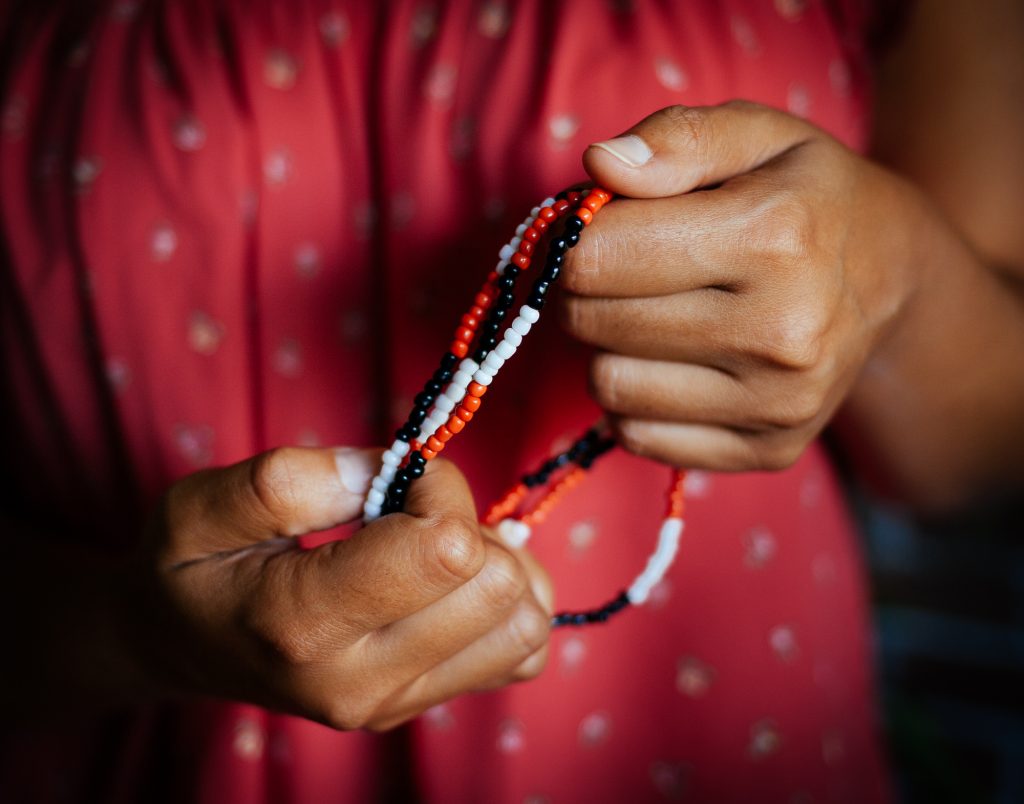
Family
Priscilla’s religious mother gave her these prayer beads. Although Priscilla doesn’t consider herself to be religious and lives by the motto “you do what’s best for you,” she keeps these beads with her at all times as a sort of protector. These beads symbolize her family’s religion, Catholicism, and all of the history connected to this. Priscilla emphasizes that, according to superstition, it is crucial never to break these, and if you do, you must make sure to collect all of the beads swiftly.
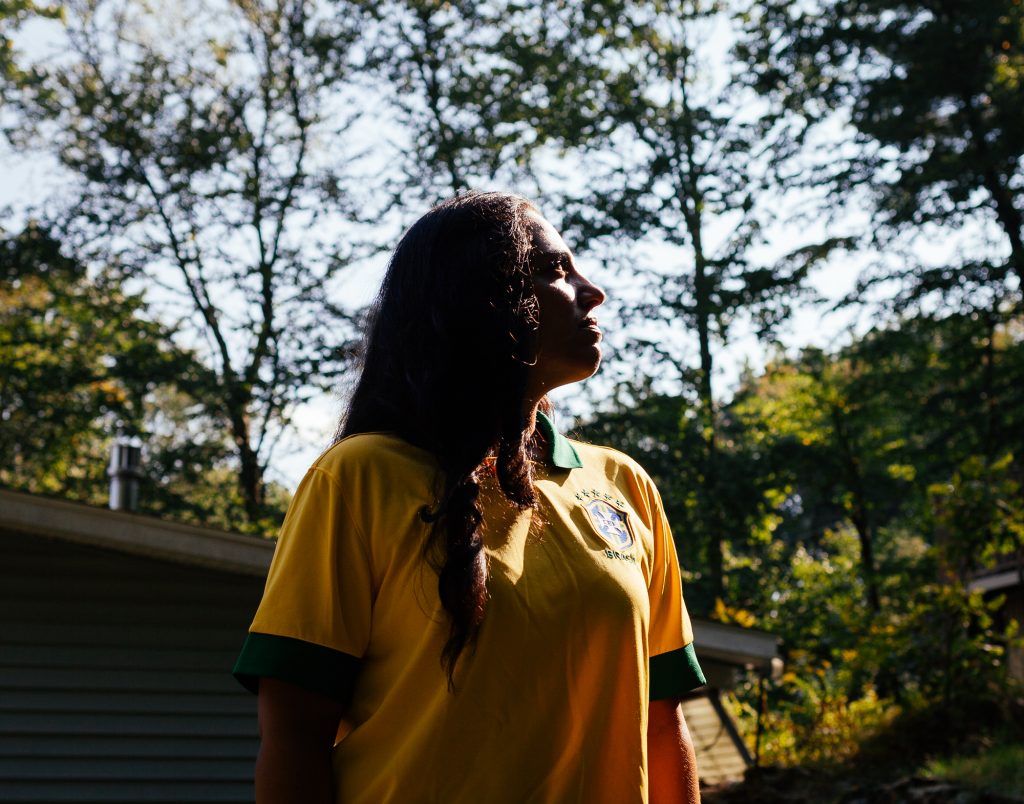
New Hampshire
After living in Massachusetts, Priscilla and her family moved to Bedford, New Hampshire. Bedford is a suburb of Manchester, the state’s largest city. Priscilla has always found it hard to fit in.
“I can adapt anywhere, but fitting in is different. I feel that when I look around, I can’t find someone like me.”
Most people never guess that she is a mother of three, or that she’s in her early forties. She has found it difficult to make friends with the local women. When she has conversations with the other moms, they generally want to discuss their children. Priscilla wants to discuss other things. (audio below)
Priscilla has also noticed that when she walks around New Hampshire, she gets a lot of strange looks, which she attributes to her having darker skin. (audio below)
She recognizes that nobody’s life is easy. Still, she thinks life is harder in New Hampshire when you are a “foreigner” – especially around Bedford, which is not a very diverse place.
“When you see somebody else who is foreign, you automatically cling on.” (audio below)
Priscilla’s closest friends are still back in Brazil – and she tries to go back to see them most summers.
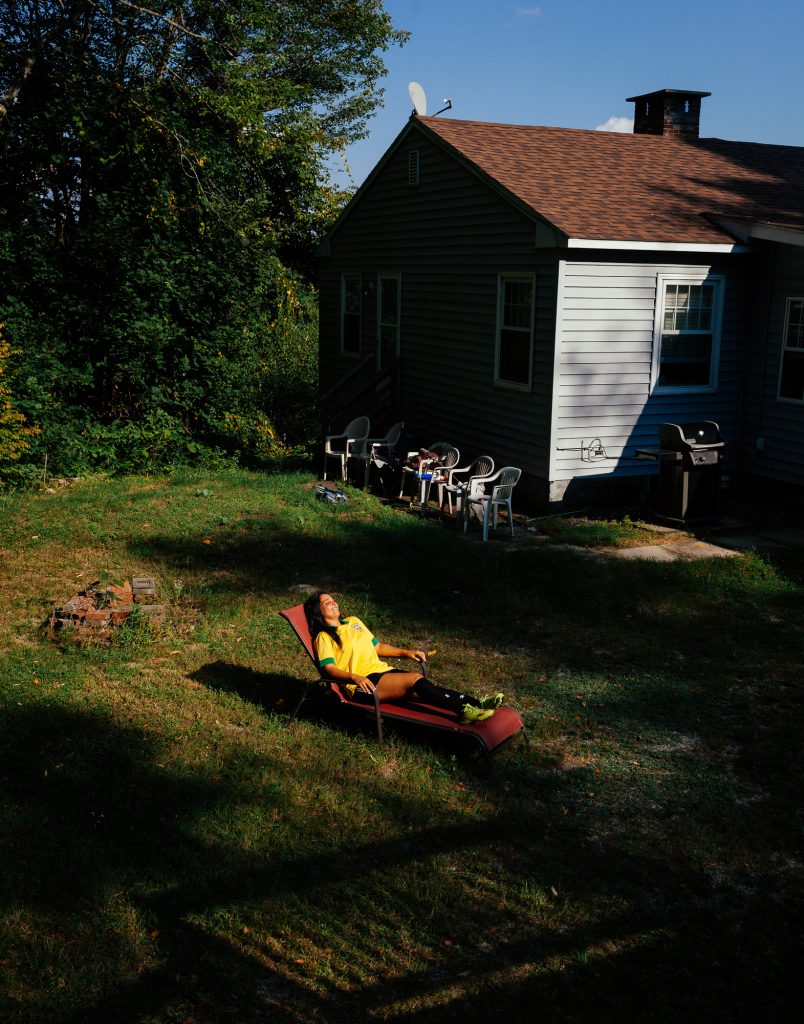
Identity
Being the daughter of an Australian father and Brazilian mother, Priscilla sees herself as a blend of the two – “the in-between” or “the best of both worlds.”
“I’m not your loud and welcoming Brazilian, and I’m also not your close-minded Australian.” (audio below)
Priscilla has always had a knack for picking up languages and speaking them without a detectable accent. When she was in Brazil, people would ask her if she was American, and when she speaks Spanish to customers at work, they think she is from Mexico.
Priscilla wants her children to have the opportunity to travel and learn about other cultures. Still, most importantly, Priscilla wants them to have a “home”. She wants her children to feel like they belong where they live.
“New Hampshire is the place that my kids know the most. I don’t want them to feel the way I felt traveling all over.” (audio below)

Home
Soccer is Priscilla’s passion. She doesn’t play it as much as she used to, due to a couple of injuries, but it is still a big part of her life in New Hampshire. It’s one way she stays connected to her Brazillian roots, and it keeps her feeling young.
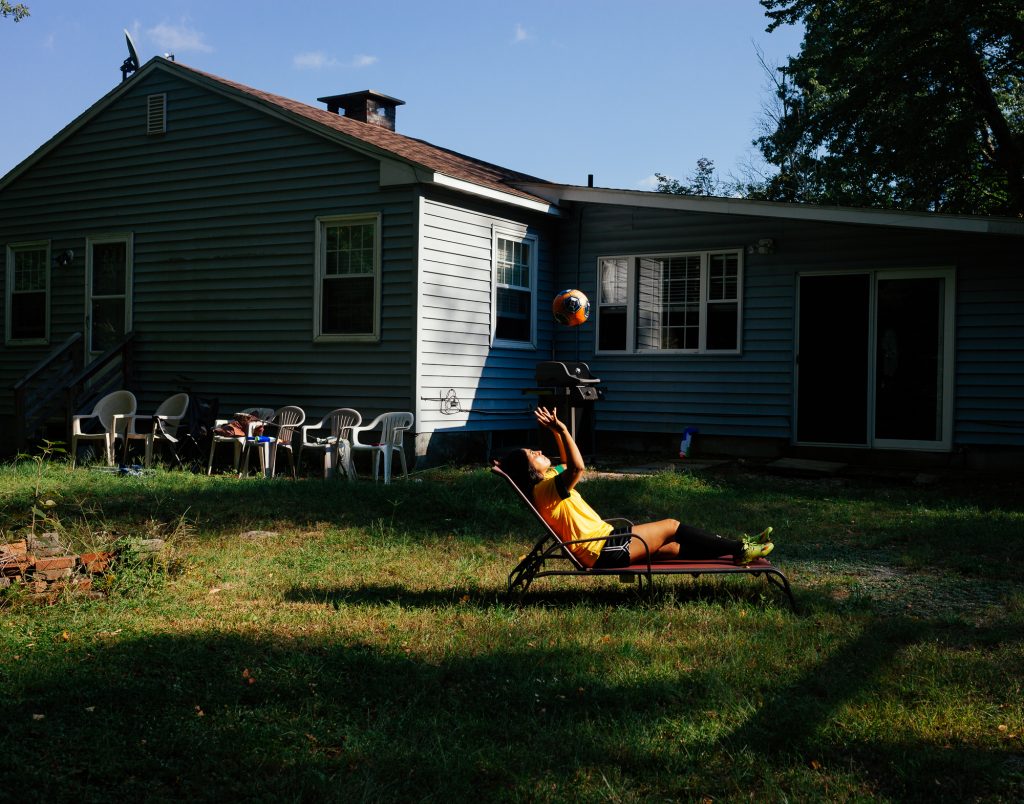
Priscilla works in customer service. She finds it strange that people don’t socialize after work like they do in Brazil. In Bedford, people go straight home after work, especially in the winter. The United States may be where she lives, but Brazil will always be her home. She misses the warmth of the people.
“The people in Brazil seem to be happier than here. You see a lot of poverty, but you also see a lot of happy faces, even when life is rough.”
#FINDINGAMERICAN
To receive updates on the book release and exhibition of “Finding American: Stories of Immigration from all 50 States” please subscribe here. This project is a labor of love and passion. If you would like to support its continuation, it would be greatly appreciated!
© Photos and text by Colin Boyd Shafer | Edited by Kate Kamo McHugh. Quotes are edited for clarity and brevity.





